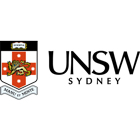Master of Psychology (Forensic)
- Home
- Courses
- UNSW Sydney – University of New South Wales
- Master of Psychology (Forensic)
Master of Psychology (Forensic)
Overview Legal, investigative, corrective and policy agencies across Australia are looking for individuals with the psychological expertise to aid understanding and management of forensic issues. The Master of Psychology (Forensic) will prepare you to meet the increasing demand for professionals in this field. This program – first offered in 1998…
Categories
COURSE DESCRIPTION
Overview
Legal, investigative, corrective and policy agencies across Australia are looking for individuals with the psychological expertise to aid understanding and management of forensic issues. The Master of Psychology (Forensic) will prepare you to meet the increasing demand for professionals in this field.
This program – first offered in 1998 – focuses on the integration of clinical, research and legal skills. Your courses will cover psychological assessment, intervention in and applications of forensic psychology, law for psychologists and professional and ethical practice. In addition to coursework, you’ll complete a research thesis, in the form of a scholarly journal article, on a topic relevant to forensic psychology.
Forensic psychologists can be involved in all professional aspects of the interface between psychology and the law. Forensic psychologists work in a wide range of settings, including prisons, courts, police, probation and parole, juvenile justice, public policy, insurance, community services and child protection.
Future careers
Psychology is an ideal career path for people who enjoy working with and caring for others. At UNSW Science, our graduates demonstrate skills in assessment, diagnosis, prevention and treatment of problems at an individual and organisational level.
There’s increasing demand from legal, investigative, corrective and policy agencies across Australia to obtain psychological expertise to aid understanding and management of forensic issues. Forensic psychologists work in a wide range of settings, including:
- prisons
- courts
- probation and parole
- child protection
- juvenile justice
- insurance
- mediation
- private practice
- public policy
- legislative review.
REQUIREMENTS
The minimum entrance requirement is completion of a four-year APAC-accredited sequence in psychology, including a major research thesis, completed within the last ten years with Honours Class 1 (85%), Upper Second-Class Honours (75%) or their equivalents.
Psychology qualifications from overseas must include a major research thesis/project and must be assessed by the Australian Psychological Society (APS) as equivalent to a four-year APAC-accredited sequence in psychology completed in Australia.
English Language Requirements:
IELTS: 7.0 overall (min 7.0 in each subtest); TOEFL IBT (Internet Based): 94 overall (min. 27 in
writing, 24 in reading and listening, 23 in speaking); Pearson (PTE – Academic): 65 overall (min. 65 in each subtest).
EDUCATIONAL INSTITUTION
The University of South Australia is a globally connected and engaged university with industry-informed teaching and research that is inventive and adventurous. Ranked in the world’s top 50 under 50^ and with 100% of assessed research rated at or above world-class*, the University is young, innovative and offers students the chance to gain real-world experience.Focused on life beyond the classroom, the University of South Australia offers a practical approach to teaching and learning. Degrees are designed in partnership with industry, giving students opportunities to gain the latest insights and trends and ensuring they graduate career ready.^Ranked in the World’s Top 50 Under 50 – Ranked #29, 2021 QS Top 50 Universities Aged Under 50 and Ranked #46, 2022 THE Young University Rankings*2018 Excellence in Research for Australia (ERA), 4-digit Fields of Research




